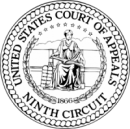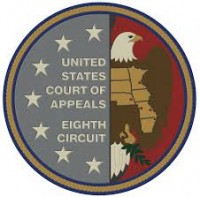The U.S. Court of Appeals for the Fifth Circuit recently held that section 506(c) of the Bankruptcy Code, 11 U.S.C. § 506(c), permits a trustee to recover from a secured creditor the expenses the trustee incurred while maintaining a property during bankruptcy. A copy of the opinion in In re Domistyle, Inc. is available at: Link to Opinion. The debtor in this case was placed into receivership in April 2013. The receiver initiated Chapter 11 proceedings on the belief that the debtor had enough equity to reorganize. One of the debtor’s most valuable assets was an industrial building situated on 17 acres…
Posts published in “Bankruptcy”
The U.S. Bankruptcy Court for the Middle District of Florida recently overruled a debtor’s objection to a mortgagee’s secured claim and denied the debtor’s motion to determine secured status, holding that the issues should have been brought by adversary proceeding, and in any event neither Florida’s statute of limitations nor its statute of repose barred enforcement of the note and mortgage. A copy of the opinion in In re Anthony is available at: Link to Opinion. A mortgagee filed a mortgage foreclosure action in Florida state court in 2009. The complaint contained a paragraph accelerating the note. The mortgagee also…
The U.S. Bankruptcy Court for the Middle District of Florida recently held that: 1) A bankruptcy trustee was entitled to recover $1,000 in statutory damages on behalf of each of the husband and wife debtors against a loan servicer for violating the Florida Consumer Collection Practices Act (FCCPA) by contacting the debtors after they were represented by counsel; and 2) The servicer could not set off the $2,000 in FCCPA damages against the balance owed on the mortgage loan because, according to the Court, allowing a set off would thwart the FCCPA’s goal of deterring abusive debt collection practices; and…
In a case addressing what it means to “surrender” property under the Bankruptcy Code, the U.S. District Court for the Southern District of Florida recently held that a Chapter 7 trustee’s abandonment of real property only restores legal title to the debtors as if no bankruptcy petition had been filed, and does not also give the debtors the right to contest the mortgagee’s foreclosure if the debtors elected to surrender the property. A copy of the opinion in Failla v. Citibank, NA is available at: Link to Opinion. Husband and wife debtors defaulted on their mortgage and the mortgagee sued to foreclose.…
The U.S. District Court for the District of New Jersey recently dismissed a debtor’s claims for violations of the federal Fair Debt Collection Practices Act (FDCPA) and the New Jersey Truth in Consumer Contract Warranty and Notice Act (TCCWNA), holding the debtor’s failure to schedule his lawsuit as an asset of his bankruptcy estate deprived him of standing to later assert the claims. A copy of the opinion in Lewis v. Portfolio Recovery Associates, LLC is available at: Link to Opinion. In March 2015, the debtor filed a lawsuit alleging the defendant sent him a letter in an attempt to collect a debt…
The U.S. Court of Appeals for the Ninth Circuit, in a case of first impression, recently held that section 1328(f) of the Bankruptcy Abuse Prevention and Consumer Protection Act (BAPCPA), which bars so-called “Chapter 20” debtors from receiving a discharge at the conclusion of their Chapter 13 reorganization if they received a Chapter 7 discharge within four years of filing the petition for Chapter 13 relief, does not prevent a debtor from voiding a secured creditor’s lien under section 506(d) of the Bankruptcy Code. A copy of the opinion is available at: Link to Opinion. In 2007, husband and wife…
The U.S. Bankruptcy Court for the Middle District of Florida recently held that, at a minimum, “surrender” under Bankruptcy Code §§ 521 and 1325 means a debtor cannot take an overt act that impedes a secured creditor from foreclosing its interest in secured property. In so holding, the Court found that actively contesting a post-bankruptcy foreclosure case is inconsistent with a “surrender” of the property. A copy of the opinion is available at: Link to Opinion. The Court addressed two separate bankruptcy cases. The first was a Chapter 7 bankruptcy case, in which the mortgagee instituted a foreclosure action five…
The U.S. Court of Appeals for the Eleventh Circuit recently held, in a case of first impression, that a creditor violates the bankruptcy discharge injunction by filing a proof of claim on a debt that was previously discharged in another bankruptcy proceeding. A copy of the opinion is available at: Link to Opinion. Husband and wife debtors filed a Chapter 13 bankruptcy petition in 2006. The case was converted to a Chapter 7 liquidation, and the subject debt, a deficiency of approximately $11,000 on a sales contract for a mobile home, was discharged in 2009. In 2012, the debtors filed…
Furnishing information during and after a consumer bankruptcy is a complex task, and implicates the Bankruptcy Code, Fair Credit Reporting Act and Fair Debt Collection Practices Act. Recent litigation suggests that both the content and the timing of the furnished information poses unique risk to the credit and collections industry. And a recent string of lawsuits is raising the stakes on information furnished prior to bankruptcy. On Aug. 19 at 2 p.m. Eastern, we will offer our take on the top issues coming out of recent decisions and what you can do to contain risk and enhance your credit reporting…
The United States Bankruptcy Appellate Panel for the Eighth Circuit recently held that filing a proof of claim on a time-barred debt is not, alone, a prohibited debt collection practice under the federal Fair Debt Collection Practices Act. A copy of the opinion is available at: Link to Opinion. Husband and wife debtors filed a Chapter 13 bankruptcy petition. A medical services provider filed a proof of claim shortly thereafter. After their Chapter 13 plan was confirmed, the debtors filed an adversary proceeding against the medical services provider for damages under the FDCPA, arguing that because the debt was time…
The U.S. Court of Appeals for the Fourth Circuit recently reversed the dismissal of a Chapter 13 bankruptcy debtor’s complaint filed in federal district court alleging that defendants foreclosed on and sold the debtor’s home in violation of the automatic stay, holding that the federal district court had subject matter jurisdiction and the complaint adequately stated a plausible claim for relief under 11 U.S.C. § 362(k). In so ruling, the Court held that 11 U.S.C. § 362(k), which created a private right of action for damages for willful violation of the stay, may be filed in federal district court because…
The Annual Consumer Financial Services Conference organized by The Conference on Consumer Finance Law, and co-sponsored by the Loyola University Chicago School of Law, Maurice Wutscher and other law firms, will be held Nov. 19-20, in Chicago. The conference will include presentations by some 45 of the best and brightest speakers and practitioners in the country, on the following topics: TCPA: The New FCC Order Fair Lending and HMDA CFPB Administrative Appeals Arbitration Developments UDAAP Cybersecurity CFPB Regulation of Non-Bank Auto Finance TRID: Issues and Implementation Flood and Lender-Placed Insurance Mortgage Servicing and Bankruptcy State Regulation of Debt Collection/Debt Buyers Credit…








